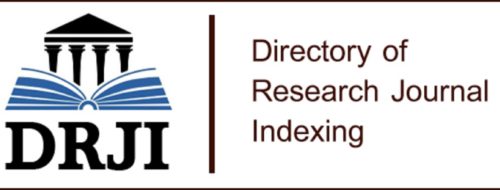OTOMOBİL YAKIT TÜKETİMİ İLE ALAKALI VERGİLERE İLİŞKİN TUTUM VE DAVRANIŞLARIN ANALİZİ: İSTANBUL ÖRNEĞİ
Öz
Bu araştırma, binek araç yakıt tüketimi
üzerine uygulanan vergilerin otomobil kullanıcılarının davranışları ve
tutumları üzerinde nasıl bir etki ortaya koyduğunu analiz etmeyi
amaçlamaktadır. Bu amaç kapsamında araştırmanın saha çalışması için anket
yöntemi tercih edilmiştir. Anket ifadeleri, binek araç kullanan ve aracın yakıt
masrafını kendi harcanabilir gelirinden karşılayan kişilere yöneltilmiştir. Anket
yönteminden sağlanan veriler, parametrik olmayan testler kullanılarak analize
tabi tutulmuştur. Analiz sonuçları, yakıt üzerinden alınan vergilerin otomobil
kullanıcıları üzerinde yaşa, cinsiyete, gelir düzeyine, eğitime ve meslek
durumuna göre farklılık gösterdiğini ortaya koymaktadır. Parametrik olmayan
test sonuçlarına göre erkeklere kıyasla kadınlar, diğer yaş gruplarına nazaran
25-39 yaş aralığında olanlar, diğer gelir gruplarına nispeten geliri 773-1000
TL arası olanlar, yakıt üzerinden alınan vergilerden daha fazla etkilenmektedir.
Anahtar Kelimeler
Otomobil Yakıt Tüketiminden Alınan Vergiler Otomobil Kullanıcılarının Davranışları Gelir Yaş
Kaynakça
- AZİZ, Aysel; (2014), Sosyal Bilimlerde Araştırma Yöntemleri ve Teknikleri, Dokuzuncu Basım, Ankara: Nobel Akademik Yayıncılık.
- ALPER, Emre C. and Orhan TORUL; (2009), “Asymmetric Adjustment of Retail Gasoline Prices in Turkey to World Crude Oil Price Changes: The Role of Taxes”, Economics Bulletin, 29 (2), pp. 1-12.
- BENTO, Antonio M.; Lawrence GOULDER; Mark R. JACOBSEN and Roger H. VON HAEFEN; (2008), “Distributional and Efficiency Impacts of Increased U.S. Gasoline Taxes”, Internet Address: http://www4.ncsu.edu /~rhhaefen/Auto051808.pdf, Date of Access: 06.06.2015.
- BLACK, Ken; (2012), Business Statistics: For Contemporary Decision Making, Seventh Edition, USA: John Wiley & Sons, Inc.
- BRUNELL, Thomas L. and Amihai GLAZER; (2001), “Rational Response to Irrational Attitudes: The Level of The Gasoline Tax In The United State”, Journal of Policy Analysis and Management, 20 (4), pp. 761-769.
- BUEHLER, Ralph; (2008), “Transport Policies, Travel Behavior, and Sustainability : A Comparison of Germany and The U.S.”, Internet Adress: http://search.proquest.com/docview/304456448, Date of Access: 30.04.2017.
- CHERNICK, Howard. And Andrew RESCHOVSKY; (1997), “Who Pays The Gasoline Tax”, National Tax Journal, 50 (2), pp.233-59.
- ÇELİKKAYA, Ali; (2011), “Avrupa Birliği Üyesi Ülkelerde Çevre Vergisi Reformları ve Türkiye’deki Durumun Değerlendirilmesi”, Anadolu Üniversitesi Sosyal Bilimler Dergisi, 11 (2), ss. 97-120.
- DAVIS, Lucas W. and Lutz KILIAN; (2009), “Estimating the Effect of a Gasoline Tax on Carbon Emissions”, Internet Address: http://www-personal.umich.edu/~lkilian/gasoline27.pdf, Date of Access: 06.06.2015.
- EKİNCİ, Filiz ve Sevgi GÖNÜLLÜOĞLU; (2012), “Otomobil Tüketicilerinin Motorlu Taşıt Vergisi ve Bu Vergide Yapılması Planlanan Yasal Düzenlemelere İlişkin Bilgi Düzeyinin Ölçülmesine Yönelik Bir Araştırma”, Uluslararası Alanya İşletme Fakültesi Dergisi, 4 (3), ss.35-43.
- EROL, Kazım Okan; (2012), “Karbon Vergisi ve Motorlu Araçların Vergilendirilmesinde Çevreci Yaklaşım”, E-Yaklaşım Dergisi, İnternet Adresi: http://www.academia.edu/9574000, Erişim Tarihi: 06.03.2017.
- GERGERLİOĞLU, Ufuk; (2014), “Davranışları Etkilemeye Yönelik Özel Tüketim Vergilerinin Tutum ve Davranışlar Üzerindeki Etkilerinin Ampirik Analizi (İstanbul İli Örneği)”, Yayınlanmamış Doktora Tezi, İstanbul: İstanbul Üniversitesi Sosyal Bilimler Enstitüsü.
- GRABOWSKI, David C. and Michael MORRISEY; (2006), “Do Higher Gasoline Taxes Save Lives?”, Economics Letters, 90, pp. 51-55.
- HAMMAR, Henrik; Sverker C. JAGERS and Katarina NORDBLOM; (2006), “What Explain Attitude Towards Tax Levels? A Multi Tax Comparison” Internet Address: http://www.webmeets.com /files/papers/ERE/WC3 /255/What%20explain%20attitude%20towards%20tax%20levels%20Kyoto%20REVISED.pdf, Date of Access: 30.01.2015.
- HARPER, D. J. Gavin; (2014), “Energy Costs”, in Mark GARRETT (Ed.), Encyclopedia of Transportation Social Science and Policy, USA: Sage Publications, pp. 499-503.
- HSU, Shi-Ling; Josua WALTERS and Anthony PURGAS; (2008), “Pollution Tax Heuristics: An Empirical Study of Willingness to Pay Higher Gasoline Taxes”, Energy Policy, 36, pp. 3612-3619.
- İSLAMOĞLU, A. Hamdi ve Ümit ALNIAÇIK; (2014), Sosyal Bilimlerde Araştırma Yöntemleri, Dördüncü Basım, İstanbul: Beta.
- LI, Shanjun; Joshua LINN and Erich MUEHLEGGER; (2012), “Gasoline Taxes and Consumer Behavior”, NBER Working Paper Series, Internet Address: http://www.nber.org/papers/w17891.pdf, Date of Access: 02.02.2016.
- LÖFGREN, Asa and Katarina NORDBLOM ; (2009), “Puzzling Tax Attitudes and Labels”, Applied Economics Letters, 16, pp. 1809–1812.
- MANKIW, N. Gregory; (2007), Esentials of Economics, Fourth Edition, USA: Thomson South-Western.
- NECHYBA, Thomas; (2007), Microeconomics: An Intuitive Approach with Calculus, Second Edition, Boston: Cengage Learning.
- ÖĞÜT, Hüseyin ve Recai KUŞ; (1999), “Motorlu Taşıtlarda Alternatif Yakıt Kullanımı”, II. Ulaşım ve Trafik Kongresi Serisi Bildiriler Kitabı, Makine Mühendisleri Odası, 29 Eylül-02 Ekim, Yayın No: 242.
- PARRY, Ian; (2006), “Is Gasoline Undertaxed in the United State?”, in Wallace E. OATES (Ed.), The RFF Reader in Environmental and Resource Policy, Second Editon, USA: RFF Press, pp. 83-87.
- PARRY, W. H. Ian and Kenneth A. SMALL ; (2005), “Does Britain or The U.S. Have Right Gasoline Tax”, The American Economic Review, 95(4), pp.1276-1289.
- PRABHAKAR, Rajiv; (2012), “What Do The Public Think of Taxation? Evidence From a Focus Group Study In England”, Journal of European Social Policy, 22 (1), pp.77-89.
- ROUWENDAL, Jan and Frans DE VRIES; (1999), “The Taxation of Drivers and the Choise of Car Fuel Type”, Energy Economics, 21, pp. 17-35.
- SEGER, Doug; (2012), Freer Markets Within the USA: Tax Changes that Make Trade Freer Within the United States, USA: AuthorHouse.
- SEYİDOĞLU, Halil; (2009), Bilimsel Araştırma ve Yazma El Kitabı, Onuncu Baskı, İstanbul: Güzem Can Yayınları.
- SİPES, Kristin N. and Robert MENDELSOHN; (2001), “The Effectiveness of Gasoline Taxation to Manage Air Pollution”, Ecological Economics, 36, pp.299-309.
- The Congress Of The United States Congressional Budget Office ; (1983), An Analysis of the President’s Budgetary Proposals for Fiscal Year 1984.
- TTD; (2015), “Dizel Araçlar Çevreye Zararlı mı”, İnternet Adresi: http://toraks.org.tr/halk/News.aspx?detail=2653, Erişim Tarihi: 06.03.2015.
- TÜİK;(2016),İnternet Adresi: http://www.tuik.gov.tr/HbGetirHTML.do?id= 21507, Erişim Tarihi:10.02.2016.
- Us Environmental Protection Agency; (1997), Opportunities to Improve Air Ouality through Transportation Pricing Programs, ICF Incorporated.
- ÜSTÜN, Ümit Süleyman; (2012), “Motorlu Taşıtlar Üzerinden Alınan Vergilerin Çevreyi Korumaya Yönelik ve Adil Olarak Düzenlenmesi”, Gazi Üniversitesi Hukuk Fakültesi Dergisi, 16(1), ss.153-190.
- VAN MEERKERK, Jordy and Gusta RENES; (2014) “Greening the Dutch Car Fleet: The Role of Differentiated Sales Taxes”, Internet Address: http://www.pbl.nl/sites/default/files/cms/publicaties/pbl-2013-greening-the-dutch-car-fleet-the-role-of-differentiated-sales-taxes-1209.pdf, Date of Access: 04.02.2016.
- WANG, Walter; (2011), “Greennig The Dragon: The Energy Tax Policy In China”, in Larry Kreiser, Julsuchada Sirisom, Hope Ashiabor, Janet E. MİLNE (Ed.), Environmental Taxation In China and Asia-Pacific, UK: Edward Elgar Publishing Limited, pp. 3-17.
ANALYSIS OF THE BEHAVIOURS AND ATTITUDES TOWARDS TAXES RELATED TO AUTOMOBILE FUEL CONSUMPTION: EVIDENCE FROM İSTANBUL
Öz
This research aims to analyze the
attitudes and behaviors related to taxation on automobile fuel
consumption. Within this scope, the field research study was conducted by
using the questionnaire method. The questionnaires were directed to automobile
users who pay for automobile fuel costs from their own pockets. The data
is analyzed by using Nonparametric tests. The results of the analysis reveal
that the reactions towards tax on fuel consumption can change according to the
age, sex, income level, education and profession status of the automobile
users. Nonparametric test results show that compared to men, women are more affected
from the taxes on fuel consumption. Moreover, it is also found that compared to
other age groups, those
in the age range 25-39 are more affected from taxes on fuel consumption while
participants who earn 773-1000 TL are more influenced from taxes on fuel
consumption compared to other income groups.
Anahtar Kelimeler
Automobile Taxes related to Automobile Fuel Consumption The Behaviors of Automobile Drivers Income Age
Kaynakça
- AZİZ, Aysel; (2014), Sosyal Bilimlerde Araştırma Yöntemleri ve Teknikleri, Dokuzuncu Basım, Ankara: Nobel Akademik Yayıncılık.
- ALPER, Emre C. and Orhan TORUL; (2009), “Asymmetric Adjustment of Retail Gasoline Prices in Turkey to World Crude Oil Price Changes: The Role of Taxes”, Economics Bulletin, 29 (2), pp. 1-12.
- BENTO, Antonio M.; Lawrence GOULDER; Mark R. JACOBSEN and Roger H. VON HAEFEN; (2008), “Distributional and Efficiency Impacts of Increased U.S. Gasoline Taxes”, Internet Address: http://www4.ncsu.edu /~rhhaefen/Auto051808.pdf, Date of Access: 06.06.2015.
- BLACK, Ken; (2012), Business Statistics: For Contemporary Decision Making, Seventh Edition, USA: John Wiley & Sons, Inc.
- BRUNELL, Thomas L. and Amihai GLAZER; (2001), “Rational Response to Irrational Attitudes: The Level of The Gasoline Tax In The United State”, Journal of Policy Analysis and Management, 20 (4), pp. 761-769.
- BUEHLER, Ralph; (2008), “Transport Policies, Travel Behavior, and Sustainability : A Comparison of Germany and The U.S.”, Internet Adress: http://search.proquest.com/docview/304456448, Date of Access: 30.04.2017.
- CHERNICK, Howard. And Andrew RESCHOVSKY; (1997), “Who Pays The Gasoline Tax”, National Tax Journal, 50 (2), pp.233-59.
- ÇELİKKAYA, Ali; (2011), “Avrupa Birliği Üyesi Ülkelerde Çevre Vergisi Reformları ve Türkiye’deki Durumun Değerlendirilmesi”, Anadolu Üniversitesi Sosyal Bilimler Dergisi, 11 (2), ss. 97-120.
- DAVIS, Lucas W. and Lutz KILIAN; (2009), “Estimating the Effect of a Gasoline Tax on Carbon Emissions”, Internet Address: http://www-personal.umich.edu/~lkilian/gasoline27.pdf, Date of Access: 06.06.2015.
- EKİNCİ, Filiz ve Sevgi GÖNÜLLÜOĞLU; (2012), “Otomobil Tüketicilerinin Motorlu Taşıt Vergisi ve Bu Vergide Yapılması Planlanan Yasal Düzenlemelere İlişkin Bilgi Düzeyinin Ölçülmesine Yönelik Bir Araştırma”, Uluslararası Alanya İşletme Fakültesi Dergisi, 4 (3), ss.35-43.
- EROL, Kazım Okan; (2012), “Karbon Vergisi ve Motorlu Araçların Vergilendirilmesinde Çevreci Yaklaşım”, E-Yaklaşım Dergisi, İnternet Adresi: http://www.academia.edu/9574000, Erişim Tarihi: 06.03.2017.
- GERGERLİOĞLU, Ufuk; (2014), “Davranışları Etkilemeye Yönelik Özel Tüketim Vergilerinin Tutum ve Davranışlar Üzerindeki Etkilerinin Ampirik Analizi (İstanbul İli Örneği)”, Yayınlanmamış Doktora Tezi, İstanbul: İstanbul Üniversitesi Sosyal Bilimler Enstitüsü.
- GRABOWSKI, David C. and Michael MORRISEY; (2006), “Do Higher Gasoline Taxes Save Lives?”, Economics Letters, 90, pp. 51-55.
- HAMMAR, Henrik; Sverker C. JAGERS and Katarina NORDBLOM; (2006), “What Explain Attitude Towards Tax Levels? A Multi Tax Comparison” Internet Address: http://www.webmeets.com /files/papers/ERE/WC3 /255/What%20explain%20attitude%20towards%20tax%20levels%20Kyoto%20REVISED.pdf, Date of Access: 30.01.2015.
- HARPER, D. J. Gavin; (2014), “Energy Costs”, in Mark GARRETT (Ed.), Encyclopedia of Transportation Social Science and Policy, USA: Sage Publications, pp. 499-503.
- HSU, Shi-Ling; Josua WALTERS and Anthony PURGAS; (2008), “Pollution Tax Heuristics: An Empirical Study of Willingness to Pay Higher Gasoline Taxes”, Energy Policy, 36, pp. 3612-3619.
- İSLAMOĞLU, A. Hamdi ve Ümit ALNIAÇIK; (2014), Sosyal Bilimlerde Araştırma Yöntemleri, Dördüncü Basım, İstanbul: Beta.
- LI, Shanjun; Joshua LINN and Erich MUEHLEGGER; (2012), “Gasoline Taxes and Consumer Behavior”, NBER Working Paper Series, Internet Address: http://www.nber.org/papers/w17891.pdf, Date of Access: 02.02.2016.
- LÖFGREN, Asa and Katarina NORDBLOM ; (2009), “Puzzling Tax Attitudes and Labels”, Applied Economics Letters, 16, pp. 1809–1812.
- MANKIW, N. Gregory; (2007), Esentials of Economics, Fourth Edition, USA: Thomson South-Western.
- NECHYBA, Thomas; (2007), Microeconomics: An Intuitive Approach with Calculus, Second Edition, Boston: Cengage Learning.
- ÖĞÜT, Hüseyin ve Recai KUŞ; (1999), “Motorlu Taşıtlarda Alternatif Yakıt Kullanımı”, II. Ulaşım ve Trafik Kongresi Serisi Bildiriler Kitabı, Makine Mühendisleri Odası, 29 Eylül-02 Ekim, Yayın No: 242.
- PARRY, Ian; (2006), “Is Gasoline Undertaxed in the United State?”, in Wallace E. OATES (Ed.), The RFF Reader in Environmental and Resource Policy, Second Editon, USA: RFF Press, pp. 83-87.
- PARRY, W. H. Ian and Kenneth A. SMALL ; (2005), “Does Britain or The U.S. Have Right Gasoline Tax”, The American Economic Review, 95(4), pp.1276-1289.
- PRABHAKAR, Rajiv; (2012), “What Do The Public Think of Taxation? Evidence From a Focus Group Study In England”, Journal of European Social Policy, 22 (1), pp.77-89.
- ROUWENDAL, Jan and Frans DE VRIES; (1999), “The Taxation of Drivers and the Choise of Car Fuel Type”, Energy Economics, 21, pp. 17-35.
- SEGER, Doug; (2012), Freer Markets Within the USA: Tax Changes that Make Trade Freer Within the United States, USA: AuthorHouse.
- SEYİDOĞLU, Halil; (2009), Bilimsel Araştırma ve Yazma El Kitabı, Onuncu Baskı, İstanbul: Güzem Can Yayınları.
- SİPES, Kristin N. and Robert MENDELSOHN; (2001), “The Effectiveness of Gasoline Taxation to Manage Air Pollution”, Ecological Economics, 36, pp.299-309.
- The Congress Of The United States Congressional Budget Office ; (1983), An Analysis of the President’s Budgetary Proposals for Fiscal Year 1984.
- TTD; (2015), “Dizel Araçlar Çevreye Zararlı mı”, İnternet Adresi: http://toraks.org.tr/halk/News.aspx?detail=2653, Erişim Tarihi: 06.03.2015.
- TÜİK;(2016),İnternet Adresi: http://www.tuik.gov.tr/HbGetirHTML.do?id= 21507, Erişim Tarihi:10.02.2016.
- Us Environmental Protection Agency; (1997), Opportunities to Improve Air Ouality through Transportation Pricing Programs, ICF Incorporated.
- ÜSTÜN, Ümit Süleyman; (2012), “Motorlu Taşıtlar Üzerinden Alınan Vergilerin Çevreyi Korumaya Yönelik ve Adil Olarak Düzenlenmesi”, Gazi Üniversitesi Hukuk Fakültesi Dergisi, 16(1), ss.153-190.
- VAN MEERKERK, Jordy and Gusta RENES; (2014) “Greening the Dutch Car Fleet: The Role of Differentiated Sales Taxes”, Internet Address: http://www.pbl.nl/sites/default/files/cms/publicaties/pbl-2013-greening-the-dutch-car-fleet-the-role-of-differentiated-sales-taxes-1209.pdf, Date of Access: 04.02.2016.
- WANG, Walter; (2011), “Greennig The Dragon: The Energy Tax Policy In China”, in Larry Kreiser, Julsuchada Sirisom, Hope Ashiabor, Janet E. MİLNE (Ed.), Environmental Taxation In China and Asia-Pacific, UK: Edward Elgar Publishing Limited, pp. 3-17.
Ayrıntılar
| Bölüm | Makaleler |
|---|---|
| Yazarlar | |
| Yayımlanma Tarihi | 28 Haziran 2017 |
| Kabul Tarihi | 1 Nisan 2017 |
| Yayımlandığı Sayı | Yıl 2017 |
Cited By
Mükelleflerin Özel Tüketim Vergisinde Yapılan Değişikliklere Tepkileri
Adnan Menderes Üniversitesi Sosyal Bilimler Enstitüsü Dergisi
https://doi.org/10.30803/adusobed.355357
IS THE EXCISE TAX PERCEIVED AS AN EXTERNALITY TAX? AN EMPIRICAL STUDY ON TURKEY
Ege Akademik Bakis (Ege Academic Review)
https://doi.org/10.21121/eab.1165418
Hanelerin Araç Yakıt Harcamalarını Etkileyen Faktörlerin İncelenmesi: Tobit Model Uygulaması
Eskişehir Osmangazi Üniversitesi Sosyal Bilimler Dergisi
https://doi.org/10.17494/ogusbd.1040780













ERÜ İktisadi ve İdari Bilimler Fakültesi Dergisi 2021 | iibfdergi@erciyes.edu.tr
Bu eser Creative Commons Atıf-Gayri Ticari-Türetilemez 4.0 Uluslararası Lisansı ile lisanslanmıştır.


